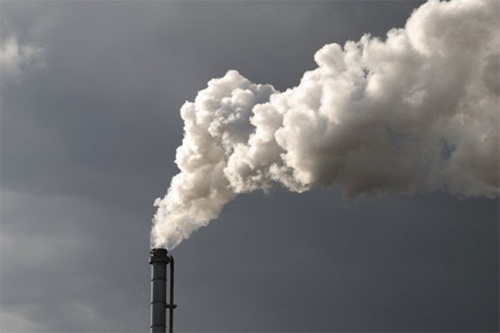PM approves plan for $3.6m carbon market
 |
Created under the Kyoto Protocol, the carbon market enables the trading of carbon emission allowances between developed countries, which have higher levels of greenhouse gas emissions than permitted, and developing countries, which have lower levels than permitted. The ostensible purpose of this initiative is to encourage countries and companies to limit their carbon dioxide emissions.
The project, with $3 million funded by the World Bank and $600,000 from the Vietnamese Government, would help to set up a database of greenhouse gas emissions throughout the country; issue policies and State management tools related to the carbon market; and implement the Nationally Appropriate Mitigation Action (NAMA) to create carbon credits.
NAMA refers to a set of policies and actions that countries in the world undertake as part of a commitment to reduce greenhouse gas emissions. Carbon credit is known as a permit that allows a country or organisation to produce a certain amount of carbon emissions that can be traded if the full allowance is not used.
The project is also expected to give assistance to Viet Nam in building a roadmap to participate in the global carbon market.
Under the project, over $1.2 million will be allocated to the Ministry of Natural Resources and Environment; $760,000 to the Ministry of Industry and Trade; $700,000 to the Ministry of Construction; $140,000 to the Ministry Of Planning And Investment; and $140,000 to the Ministry of Finance.
The environment ministry has been assigned to co-operate with relevant agencies to run the 36-month project.
Viet Nam ratified the Kyoto Protocol to the United Nations Convention on Climate Change in 2002.
| RELATED CONTENTS: | |
| Viet Nam commits to cut greenhouse gases 8% a year by 2030 | |
What the stars mean:
★ Poor ★ ★ Promising ★★★ Good ★★★★ Very good ★★★★★ Exceptional
Latest News
More News
- Foreign leaders extend congratulations to Party General Secretary To Lam (January 25, 2026 | 10:01)
- 14th National Party Congress wraps up with success (January 25, 2026 | 09:49)
- Congratulations from VFF Central Committee's int’l partners to 14th National Party Congress (January 25, 2026 | 09:46)
- 14th Party Central Committee unanimously elects To Lam as General Secretary (January 23, 2026 | 16:22)
- Worldwide congratulations underscore confidence in Vietnam’s 14th Party Congress (January 23, 2026 | 09:02)
- Political parties, organisations, int’l friends send congratulations to 14th National Party Congress (January 22, 2026 | 09:33)
- Press release on second working day of 14th National Party Congress (January 22, 2026 | 09:19)
- 14th National Party Congress: Japanese media highlight Vietnam’s growth targets (January 21, 2026 | 09:46)
- 14th National Party Congress: Driving force for Vietnam to continue renewal, innovation, breakthroughs (January 21, 2026 | 09:42)
- Vietnam remains spiritual support for progressive forces: Colombian party leader (January 21, 2026 | 08:00)
















 Mobile Version
Mobile Version